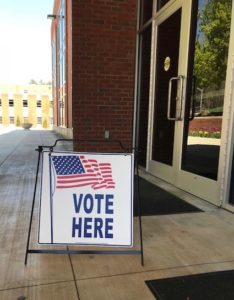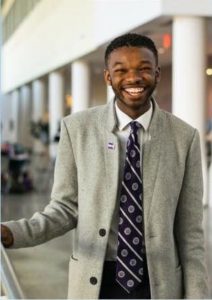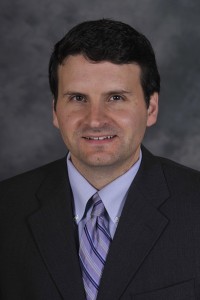
Voting place at WCU opened before the elections in 2016. This year early elections at that voting pace start on Oct. 17, 2018. Photo by WCJ.
The 2016 election was probably the most controversial presidential election in recent memory. Thousands of people lined up at voting stations across the country to place their vote for President of the United States. At the end of the election period, Donald Trump was pronounced President. For many, there was a celebration and for others there were cries of outrage.
The 2020 presidential election is shaping up to be tightly contested, and student turnout is typically very low when it comes to elections.
There are currently over 12,000 students enrolled at Western Carolina University, with several hundred staff members. In a study done by WCU, A Special Report on Student Voting Habits from 2012 and 2016 Presidential Elections, it was shown that there were 10,462 total eligible voters and 6,935 students that were registered to vote. Out of all of these students, 4,830 students (46%) voted.
Millennials are now the largest adult group in the United States. With that being said, students are now highly encouraged to vote and rising political candidates are bound to target them to secure a seat in Washington.
The Student Democracy Coalition’s PR and Marketing Head, Sara Mears, weighed in on why she thinks student votes are so important for the 2020 presidential election.
“At this time more young people are eligible to vote than any other generation and demographic. We, as young people, have the power to decide almost whatever we want in the realm of voting. We have the power to choose representatives who represent us and we have the power to choose people who will create the change that we actually want to see,” said Mears.
SDC Recruitment Chair, David Benoit, has been involved in elections recently. While at WCU, Benoit took part in Elizabeth Warren’s campaign. Benoit offered his input on student voting.

Photo Courtesy of David Benoit.
“We’re at a crucial point in our lives. If you start voting at a young age you’ll continue to do it and therefore start a good habit. Voting will decide how you live your life and your accessibility to resources you need. It’s also a good way to stay in tune with what’s going on around you because when you vote it always affects things around you,” said Benoit.
Dr. Todd Collins, a political science professor at WCU, has seen many elections throughout his lifetime. Being a political science professor, it is only natural that he would have some input on student voting.
“It is important for students to vote because voting is the main way elected leaders will respond to the issues individuals care about… If younger voters are not showing up, then elected leaders do not have incentives to work on those issues important to younger voters. If those under 25 voted at the same rate as those over 60, we would likely hear a lot more discussion of the issues that those under 25 think are important,” said Collins in an email to the Western Carolina Journalist.
A common theme among students on campus is that they didn’t plan or didn’t want to vote in the 2020 presidential election. Many students felt as if their vote didn’t matter or that it wouldn’t make much of a difference.

Sara Mears of the Student Democracy Coaliton. Photo from Mears LinkedIn page.
“People feel disenfranchised and they feel like their vote doesn’t count. For some people they think that the presidential election does not have an impact on their day to day life. I’m not saying their opinions are invalid; there are definitely systems at work that make it very easy to get discouraged. Regardless of all that I do wanna express the importance of voting. In November of 2019, a Sylva City Council race was decided by a coin flip because it was tied. Your vote does matter and it will always matter,” said Mears.
While students may feel disenfranchised when it comes to voting, Benoit concurs with Mears that every vote makes an impacts.
“I talk to people all the time about the importance of voting. I especially preach this to people of color about why they should vote and why it matters. I obviously don’t have all the answers but it does definitely effect all of us. You have the power to change politics based on how you vote,” said Benoit.
Dr.Collins also offered his take on the situation.

Associate Professor and Director of Political Science and Public Affairs, Todd Collins, via wcu.edu
“There are several reasons for this and it may vary by individual. For some, it may be that they don’t see it as important as their one vote won’t win or lose an election. But, just showing up can influence the process…. For many, voting is part of a feeling of civic duty and being a member of a community. As younger voters may not have established themselves in a community yet, these feelings aren’t as strong,” said Collins.
The November presidential election draws ever closer and Mears, Benoit, and Dr.Collins want us to really think about the issues we want to see fixed. Benoit encourages us to look at the issues we face on a daily basis, Mears encourages us to think about what we want to see implemented in the government, and Dr.Collins encourages students to just show up because even if one vote doesn’t make that much of a difference actively being at the polling location will show officials what issues to focus on.
.


